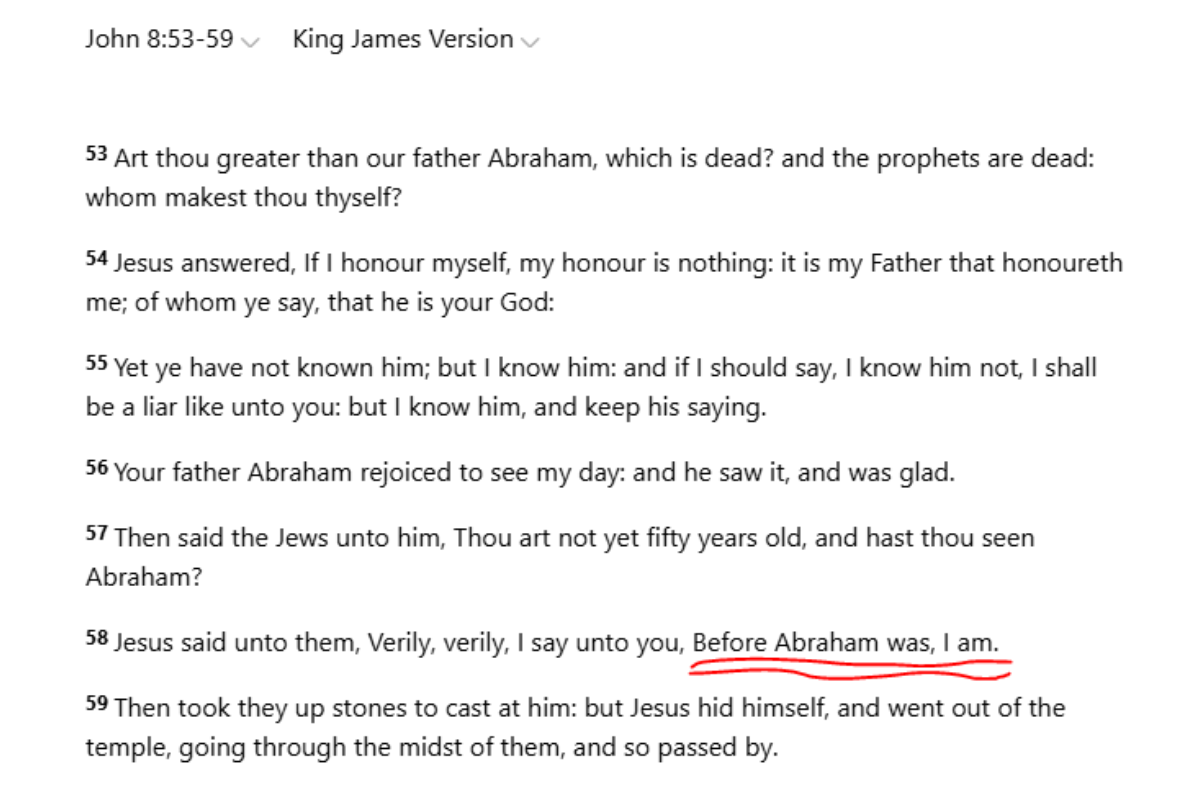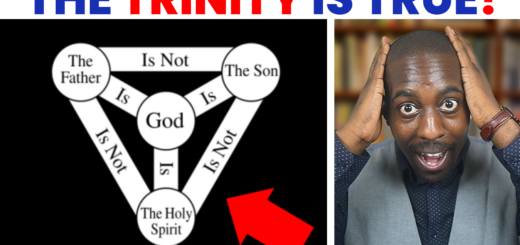The Time Jesus Claimed to Be God—And Almost Got Stoned
For centuries, people have debated who Jesus really is. Some say He was just a prophet. Others say He was a good moral teacher.
But in one dramatic encounter recorded in the Gospel of John, Jesus makes a claim so bold, so direct, that the religious leaders of His day picked up stones to kill Him on the spot.
This moment—John 8:58—is not just a highlight of Biblical drama. It is one of the clearest, most undeniable declarations that Jesus is God.
In this post, we’ll explore the full weight of what Jesus said, how the religious leaders responded, and what it means for you and me today.
We’ll trace this moment from Genesis to the Gospels, from Moses to the Messiah, and discover how the phrase “I AM” changes everything.

The Bold Statement in John 8
When Jesus declared, “Before Abraham was, I am” (John 8:58), He wasn’t merely making a poetic or symbolic remark—He was boldly making a divine claim.
In order to fully grasp the gravity of this statement, we must first examine the immediate context, then consider the broader message of John’s Gospel, and finally explore its deep connections to both the Old Testament and the original Greek language.
To begin with, the exchange in John 8:53–59 opens with religious leaders directly challenging Jesus. They ask,
“Art thou greater than our father Abraham, which is dead? and the prophets are dead: whom makest thou thyself?” – John 8:53
For first-century Jews, Abraham was not just any ancestor—he was one of the most honored figures in their history, widely revered as “the Father of the faith.”
Therefore, to suggest being greater than Abraham was not only bold; it was outright scandalous. Nevertheless, Jesus does not retreat.
On the contrary, He responds with confidence, pointing not only to Abraham but also to the divine validation of His identity and mission—namely, God’s own endorsement.
“Jesus answered, If I honour myself, my honour is nothing: it is my Father that honoureth me; of whom ye say, that he is your God.’” – John 8:54
He continues, making a dividing line between Himself and these religious leaders:
“Yet ye have not known him; but I know him: and if I should say, I know him not, I shall be a liar like unto you: but I know him, and keep his saying.” – John 8:55
Then comes the stunning declaration:
“Your father Abraham rejoiced to see my day: and he saw it, and was glad.” – John 8:56
The crowd is baffled.
“Then said the Jews unto him, Thou art not yet fifty years old, and hast thou seen Abraham?” – John 8:57
That’s when Jesus responds with the now-famous words:
“Verily, verily, I say unto you, Before Abraham was, I am.” – John 8:58
 Why They Tried to Stone Him
Why They Tried to Stone Him
The response was immediate:
“Then took they up stones to cast at him: but Jesus hid himself, and went out of the temple, going through the midst of them, and so passed by.” – John 8:59
Why such a violent reaction? Because Jesus wasn’t just claiming to predate Abraham—He was claiming divinity.
The phrase “I am” wasn’t random. It was a direct callback to Exodus 3:14, where God tells Moses from the burning bush:
“I AM THAT I AM: and He said, ‘Thus shalt thou say unto the children of Israel, I Am hath sent me unto you.’”
In the Greek translation of the Old Testament, the phrase “I AM” is rendered Ego Eimi—the same exact phrase Jesus used in John 8:58.
For first-century Jews steeped in Scripture, this wasn’t subtle. Jesus was applying God’s own name to Himself.
 Connecting to John’s Larger Message: Echoes of Genesis and Creation
Connecting to John’s Larger Message: Echoes of Genesis and Creation
This isn’t the only place where Jesus claims equality with God. Earlier, in John 5, after healing on the Sabbath, Jesus says:
“My Father worketh hitherto, and I work.” – John 5:17
This statement outraged the Jewish leaders because, as the Gospel notes:
“Therefore the Jews sought the more to kill him, because he not only had broken the sabbath, but said also that God was his Father, making himself equal with God.” – John 5:18
Jesus continually puts Himself on equal footing with the Father throughout John’s Gospel. In fact in John 5:23, He says:
“That all men should honour the Son, even as they honour the Father. He that honoureth not the Son honoureth not the Father which hath sent him.”
This is no mere prophet speaking. This is someone claiming the worship and honor due to God.
John opens his Gospel with the words:
“In the beginning was the Word, and the Word was with God, and the Word was God.” – John 1:1
This is a deliberate callback to Genesis 1:1:
“In the beginning God created the heaven and the earth..”
John wants his readers to see Jesus not just as a teacher or a healer, but as the eternal Word—the One who was with God in the beginning and who is God.
So when Jesus says, “Before Abraham was, I am,” He’s tying together Genesis, Exodus, and His present reality in one thunderous declaration of divinity.
 Does “Ego Eimi” Always Mean God?
Does “Ego Eimi” Always Mean God?
Some skeptics point out that others in the Bible also use the Greek phrase ego eimi. For instance, in John 9, a blind man says, “I am [he]” (ego eimi) when questioned.
But the difference lies in the context.
The blind man wasn’t claiming eternal pre-existence. Jesus was. He wasn’t just saying “I exist”—He was saying “I exist eternally,” invoking the divine name in a setting that made His intent unmistakable. That’s why they tried to stone Him.
Words get their meaning from context. And in this context, Jesus’ “I am” was unmistakably a claim to divinity.
If Jesus is who He says He is—the I AM, the eternal God—then that truth changes everything. Share on XIn other words, this means we are not following a myth, a moral teacher, or a wise sage.
We are following the eternal Creator—the very same God who appeared to Moses, spoke the world into existence, and ultimately revealed Himself through Christ.
As a result, this truth demands far more than mere acknowledgment. It calls for full surrender, heartfelt worship, and unwavering faith.
 Worship the “I AM”
Worship the “I AM”
Jesus wasn’t stoned that day—not because they didn’t try, but because His appointed time had not yet come.
Even so, in that defining moment, He stood boldly in the temple courts and declared the eternal truth: He is the great I AM.
His words echoed back to Moses and forward to every believer today. As we read John 8:58, we aren’t just witnessing a tense theological debate—we’re standing in the presence of a divine revelation.
“Before Abraham was, I am.”
Let that sink in.
For a deeper breakdown on this topic and how it confirms Jesus’ divine identity, read this article about the big misunderstanding in Hebrews 1:5.
It will give you insight, confidence, and clarity about why you can trust Jesus—not just as Savior, but as God Himself. God bless.
WATCH THE VIDEO























Recent Comments